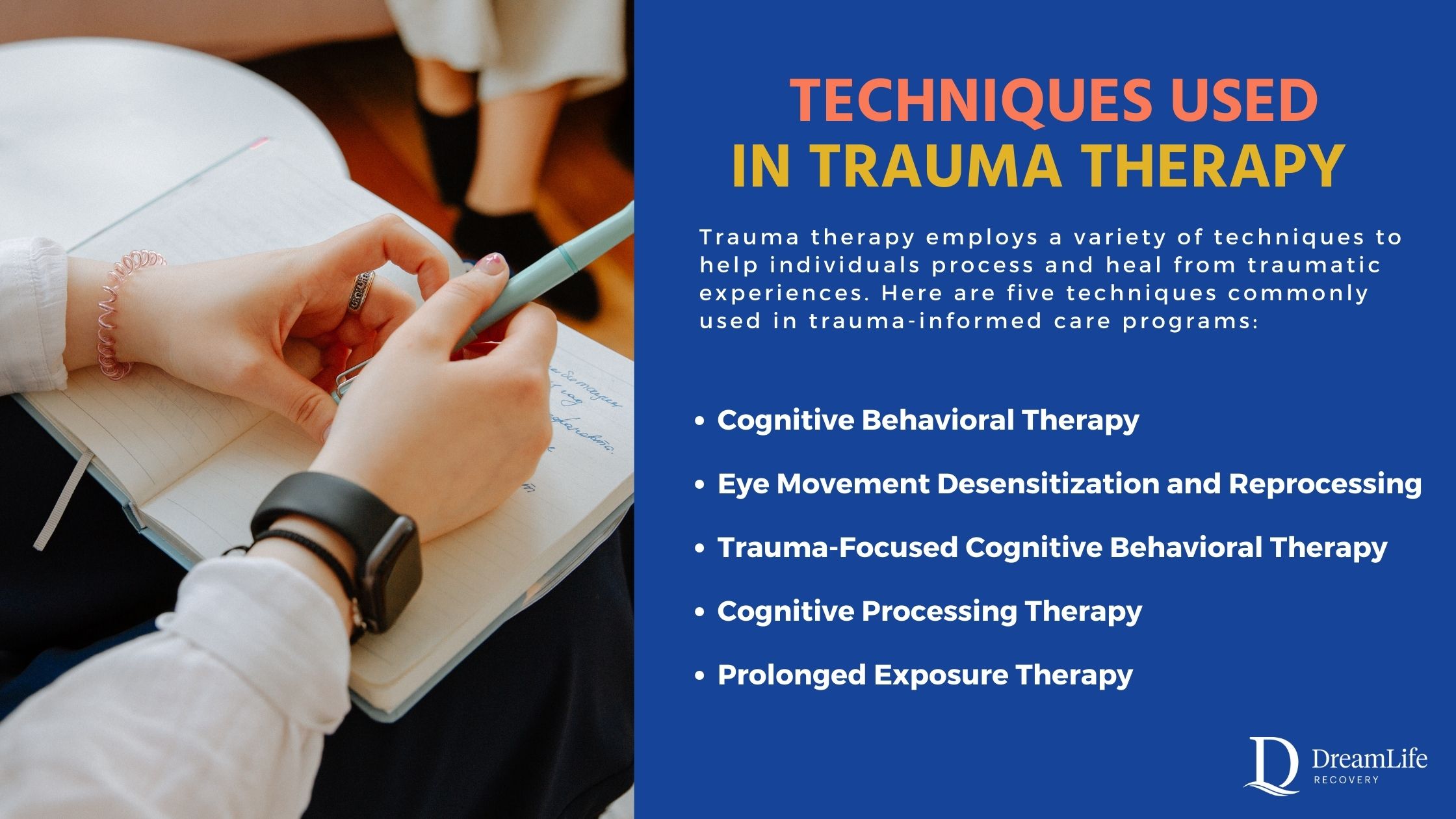In the world of addiction recovery, an approach that has gained significant traction and shown remarkable effectiveness is trauma-informed care.
Understanding the role that past trauma often plays in substance use disorders is essential in providing effective care. Trauma-informed care acknowledges this link and tailors treatment, accordingly, ensuring that those seeking help are not re-traumatized by their experiences during recovery.
This article looks into this innovative and compassionate approach to treatment. We will explore what trauma-informed care involves, its benefits, and how it can revolutionize the path to recovery.
Whether you’re a healthcare professional, someone battling addiction, or a loved one seeking understanding, this discussion offers valuable insights into a transformative approach to addiction recovery.
Understanding the Connection between Trauma and Addiction
Trauma, particularly when experienced during formative years, can significantly increase the risk of developing substance use disorders later in life. This connection is often a result of individuals attempting to cope with distressing memories and emotions associated with their trauma.
When a traumatic event occurs, it can disrupt normal brain function and psychological development, leading to abnormalities in the brain’s stress response systems.
This can result in heightened anxiety, difficulty regulating emotions, and an increased sensitivity to perceived threats. To manage these distressing symptoms, individuals may turn to substances as a form of self-medication.
Why People Turn to Substances
Substances can temporarily alleviate feelings of fear, anxiety, and depression, making them an appealing, albeit harmful, coping mechanism.
Over time, this can lead to dependence and addiction, as the individual increasingly relies on the substance to manage their emotional state.
Moreover, research has shown a strong correlation between Post Traumatic Stress Disorder (PTSD) and substance abuse, particularly in adolescents, further emphasizing the link between trauma and addiction.
Understanding this connection is vital in providing effective, trauma-informed care for those battling addiction.
Principles of Trauma-Informed Care in Addiction Recovery
Trauma-informed care is a comprehensive approach to addiction treatment that acknowledges the role and impact of trauma in a person’s life.
By understanding the interplay between trauma and substance use, this approach provides a framework for addressing the complex needs of individuals seeking recovery.
1. Safety
One of the fundamental principles of TIC is creating a safe environment, both physically and emotionally. This allows individuals to feel secure enough to confront their traumas without fear of retraumatization.
A safe therapeutic environment can significantly enhance recovery by fostering trust and openness.
2. Trustworthiness and Transparency
Trauma therapy programs, like the one we have at DreamLife Recovery, emphasize building trust through clear and consistent communication.
By being transparent about treatment processes and expectations, individuals are more likely to engage fully in their recovery journey.
3. Peer Support
Peer support plays a crucial role in TIC, as it encourages mutual self-help and sharing experiences.
This sense of community can reduce feelings of isolation and stigma, providing additional emotional support during recovery.
4. Collaboration and Mutuality
Trauma-informed care promotes equal partnerships between professionals and individuals in recovery.
This principle acknowledges the individual’s expertise on their own experience and encourages active participation in the treatment process.
5. Empowerment
DreamLife Recovery’s trauma-informed care program aims to empower individuals in their recovery by focusing on their strengths and promoting self-advocacy.
This helps boost self-esteem and resilience, key factors in sustaining long-term recovery.
By incorporating these principles, TIC offers a compassionate and effective approach to addiction recovery that considers the whole person, not just their substance use.
Techniques Used in Trauma Therapy
Trauma therapy employs a variety of techniques to help individuals process and heal from traumatic experiences. Here are five techniques commonly used in trauma-informed care programs:
1. Cognitive Behavioral Therapy (CBT):
This approach helps individuals understand and change thought patterns that lead to harmful behaviors or emotional distress.
2. Eye Movement Desensitization and Reprocessing (EMDR):
EMDR is a phased, focused approach to treating traumatic and other disturbing memories and includes elements of cognitive-behavioral, interpersonal, experiential, and body-centered therapies.
3. Trauma-Focused Cognitive Behavioral Therapy (TF-CBT):
TF-CBT combines trauma-sensitive interventions with cognitive behavioral therapy. This approach is specifically sensitive to the unique needs of traumatized individuals.
4. Cognitive Processing Therapy (CPT):
CPT focuses on helping individuals reframe negative thoughts about the trauma and gain a more adaptive understanding.
5. Prolonged Exposure Therapy (PE):
PE involves gradually exposing individuals to thoughts, feelings, and situations that they’ve been avoiding due to trauma.

The Role of Trauma-Informed Care in the Recovery Journey
Trauma-informed care is an integral part of the recovery journey, providing a safe, supportive environment that understands and acknowledges the pervasive impact of trauma.
This approach not only recognizes the role of trauma in mental health issues but also adapts treatments to accommodate and address the specific needs arising from traumatic experiences.
How Trauma-Informed Care Assists in Recovery
Trauma-informed care plays a pivotal role in recovery by acknowledging the individual’s experiences and incorporating them into the therapeutic process. It empowers survivors by giving them control over their recovery, fostering a sense of safety, and promoting healing.
This type of care recognizes the link between trauma and symptoms of mental health disorders, substance abuse, and other health-related issues, therefore focusing on treating the root cause rather than just the symptoms.
It ensures that survivors do not re-experience the trauma during their recovery process, making it a compassionate and effective approach to healing.
The Importance of Acknowledging Trauma in the Recovery Process
Acknowledging trauma in the recovery process is crucial for several reasons. Firstly, it validates the survivor’s experiences, which can be instrumental in breaking the cycle of shame and self-blame often associated with trauma.
Secondly, it allows healthcare providers to tailor treatment plans that specifically address trauma-related issues, leading to more effective and holistic care.
Lastly, recognizing trauma can foster resilience and post-traumatic growth, making it an essential aspect of successful recovery.
By integrating trauma-informed care into the recovery process, we can ensure that survivors are not just surviving but thriving.
Get Personalized Trauma-Informed Care Near Pittsburg, PA
Embracing trauma-informed care is crucial in recovery, as it comprehensively addresses the physical and mental impacts of trauma while providing strategies for moving forward.
This approach empowers individuals by giving them a sense of control over their healing journey.
At DreamLife Recovery, we are committed to providing personalized, trauma-informed care. Take the first step towards recovery today by calling us at (855) 384-5808 or filling out our contact form to book your free appointment.
[cta id=”10″]






